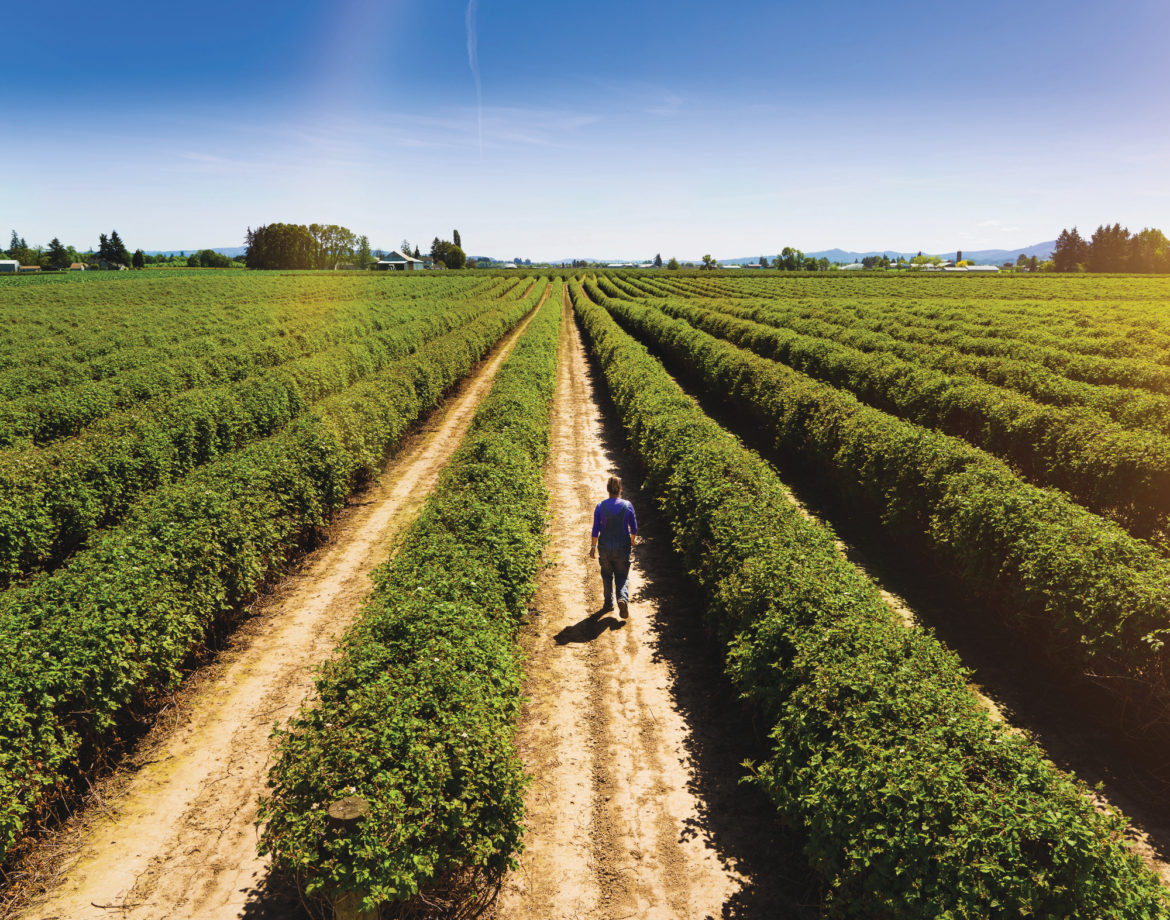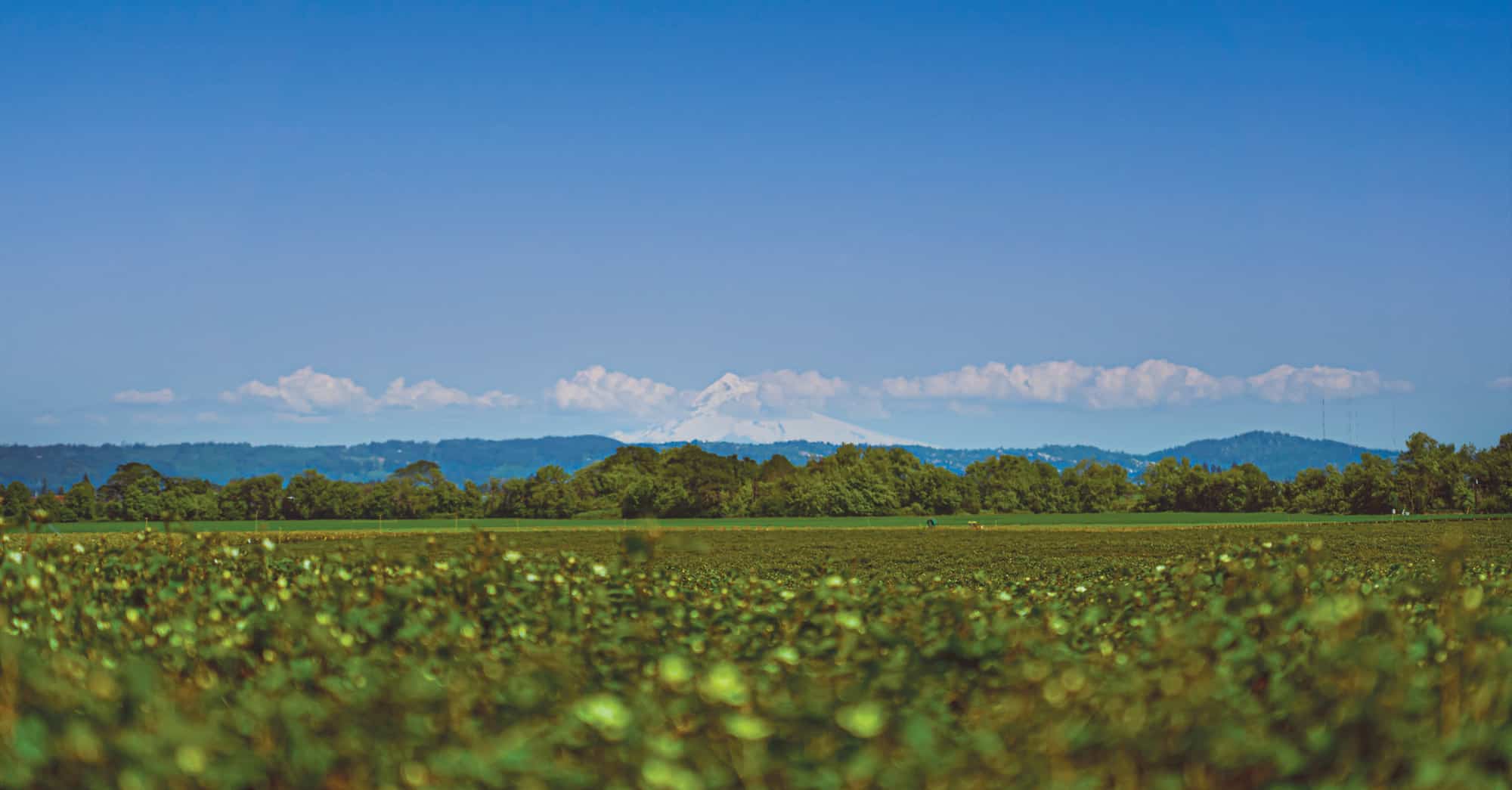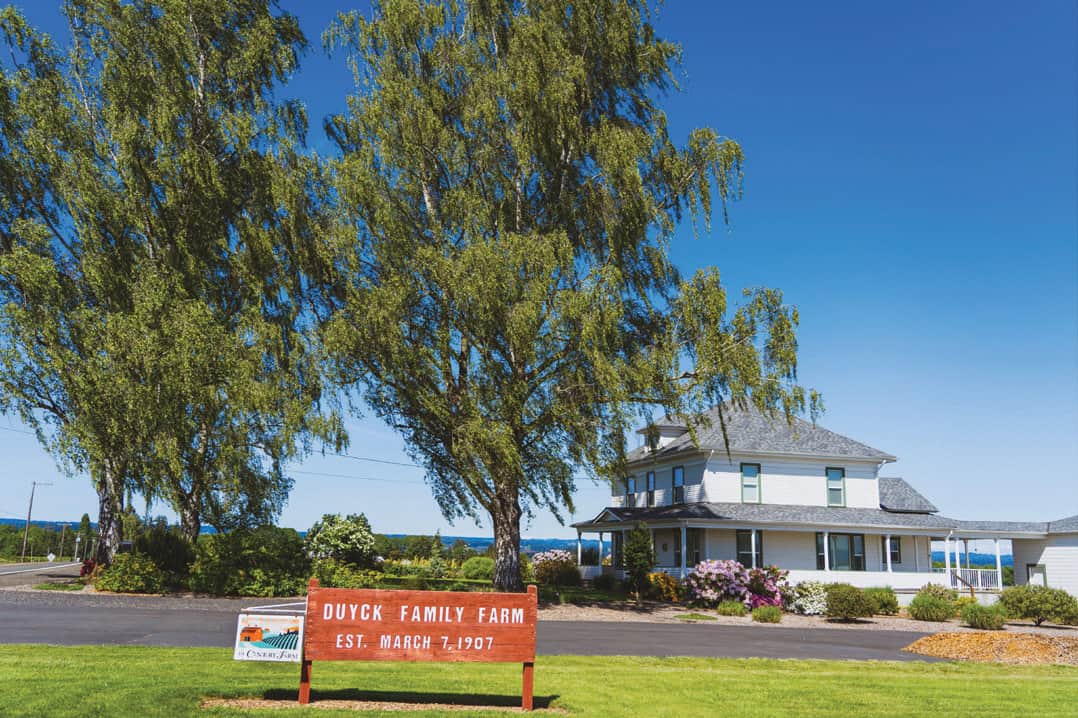Delicious and fulfilling fruit of hard work on Duyck Family Farm
Written by Sophia McDonald
Photography by Daniel Stark
“Growing up, I would always tag along with my dad, whether it was just riding in a truck or hoeing or working with a cousin. I always knew I’d come back. I just didn’t know when or how.”
— Jacque Duyck Jones, of Duyck Family Farm, on taking over the family business
Blackberries reach their peak in July, just in time for pie making, ice cream churning, jam jamborees, backyard cocktail mixing and gluttonous fresh eating. While they’re at their best straight from the vine, juices warm from the sun and staining your fingers, they also freeze well, something that makes this Oregon snack available year-round.
In fact, the freezer is the first destination for the vast majority of Oregon blackberries. According to the Oregon Raspberry & Blackberry Commission, more than 90 percent of the blackberries grown in the state are frozen within 24 hours of being picked. The frosty fruit goes into bags for consumers and food manufacturers, who use the fruit to add a kiss of Oregon sweetness to their products.
More than 200 family farms—many of them multigenerational family properties, nearly all of them in the Willamette Valley—produce these black and blue treasures. One is Jacque Duyck Jones with Duyck Family Farm in Banks. Jones started her career as an elementary school teacher, where she adored teaching kids to read and looked forward to welcoming a new “crop” of students every year. But when her father was ready to retire, she didn’t hesitate to change directions and become the fourth-generation proprietor of the family business.
“Growing up, I would always tag along with my dad, whether it was just riding in a truck or hoeing or working with a cousin,” she said. “I always knew I’d come back. I just didn’t know when or how.” For her, farming has always been more than a job. It’s a culture and a way of life. She also sees it as an opportunity to continue to be a role model for young women—in this case, demonstrating that running a farm can be a fulfilling way to make a living.
Duyck Family Farm produces multiple crops on its 400 acres, including wheat and grass seed. But Jones said blackberries, which cover about 50 acres, have always been her favorite things to grow. “I think it’s so cool how the canes produce fruit once, so right now the canes are growing for next year’s fruit,” she said.
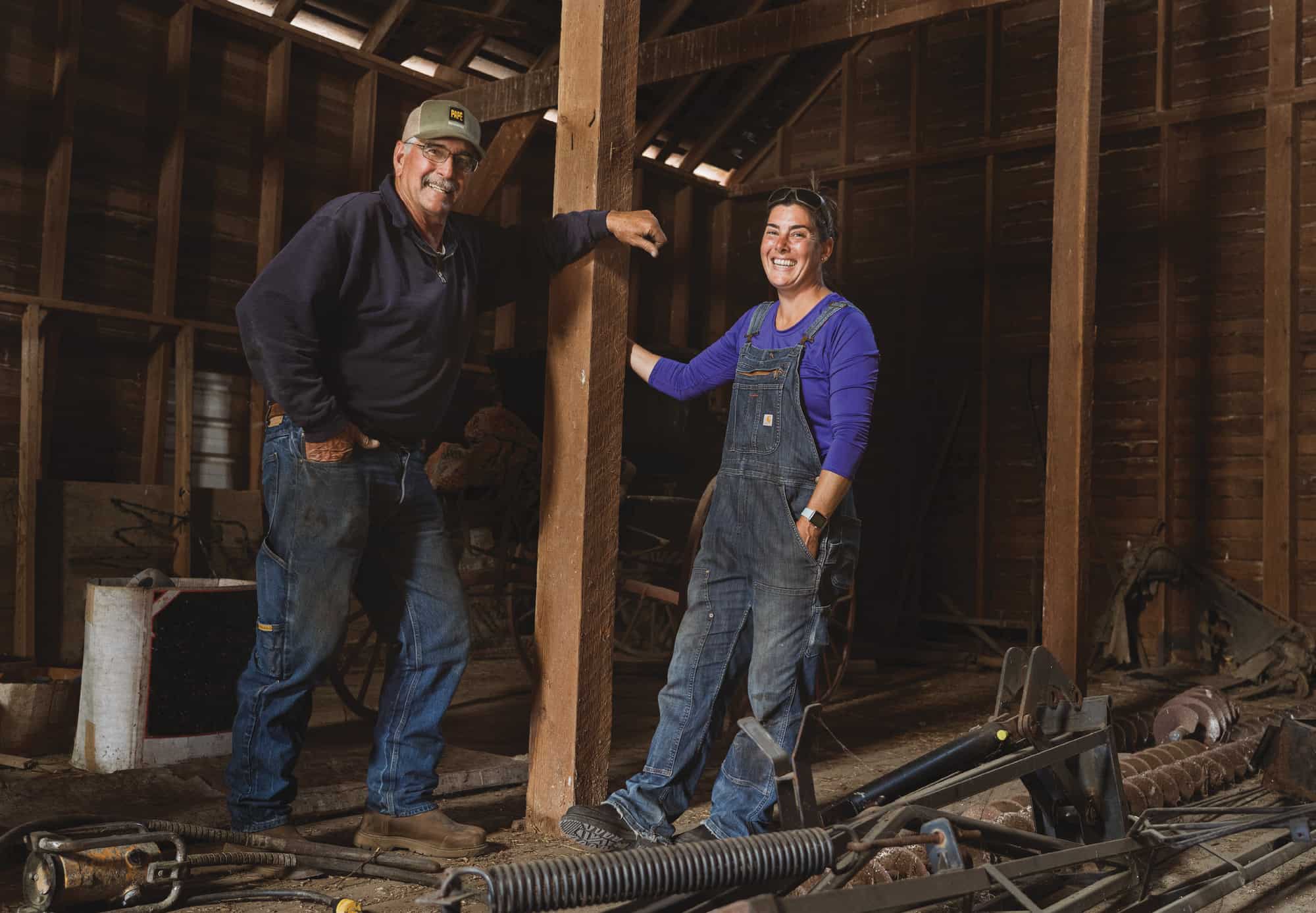
Jones doesn’t discount the delicious factor either. “When they’re ripe in the summer, sometimes I’ll have my girlfriends over and we’ll just go out into the fields at my farmhouse and pick them like crazy,” she said. She likes to blend them into smoothies and use them in desserts like pies and homemade blackberry fudge.
Marion blackberries, also known as marionberries, are the most commonly grown variety in Oregon. But Jones grows a blackberry known as Kotata instead. “In the late ’80s and early ’90s, other varieties like marionberries were freezing (on the canes),” she said. “Kotatas are much more hardy. They’re medium to large size, and when they’re picked at their peak, they’re very sweet.”
They’re also firm, making it easier to harvest them by machine (a real plus given ongoing labor shortages). When the berries begin to ripen, Jones collects them with two mechanical harvesters. The machines straddle the rows of blackberry canes and knock the berries from their fruit spurs into a flat with a series of shaker rods. The machine will pass through the berry fields six times to catch fruit that ripens at different times throughout the season.
This work is done at night, when temperatures are cooler. Jones can watch the machines at work from her house or the cab of her swather while she’s windrowing grass seed under the stars. “July is the killer month,” she acknowledged. “But all farmers rise to the occasion. That’s the time when we need to get things done because that’s the month we earn our money and all of our work year long will hopefully pay off.”
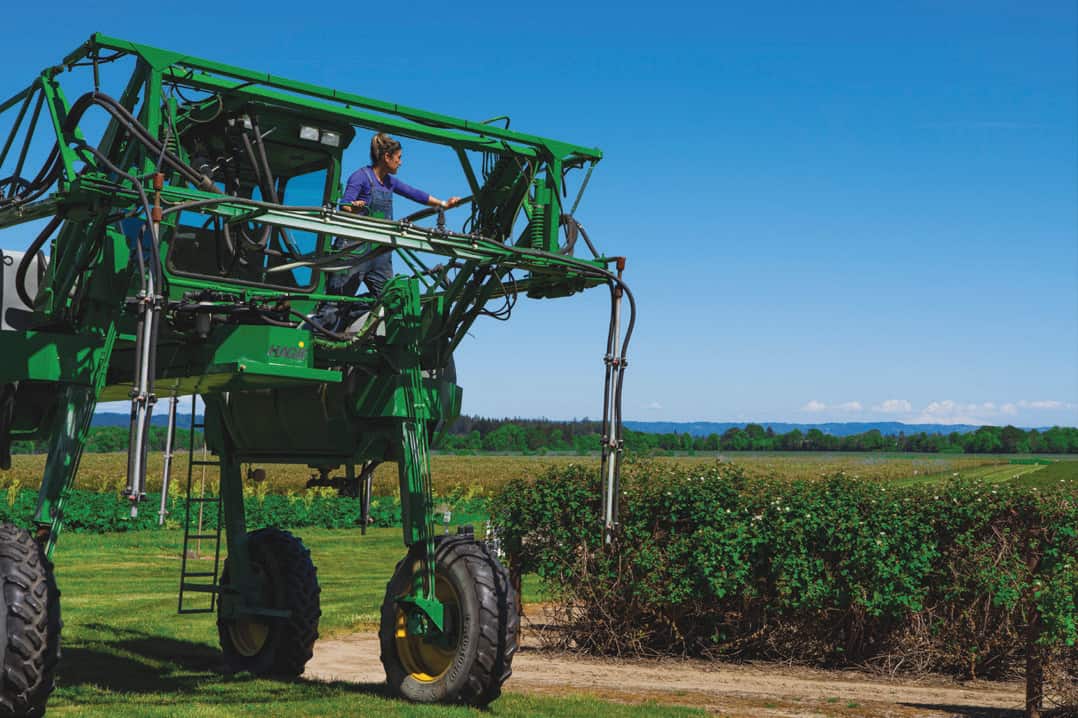
While machine-harvested blackberries can’t be sold fresh, they’re perfect for the frozen market, which Jones said is more predictable than farm stands and other fresh markets. “Farming is risky enough,” said Jones. In a world made uncertain by Mother Nature, increasing regulation and numerous other challenges, she said, any bit of stability is welcome.
Berries bound for freezing are sent to firms such as the Willamette Valley Fruit Company in Salem. There, they’re chilled using a process called individually quick frozen (IQF) technology, which locks in the berries’ flavor and nutrients. “When I see them in the store, I know that our fruit is in those bags,” Jones said. Extending the season for blackberry goodness is another sweet reward for her hard work.
To allow the complex flavor of blackberries to shine through, it’s worth sticking to simple recipes when cooking with them. Anne Cuggino, chef at Q Restaurant & Bar in southwest Portland, likes to whip up a blackberry sauce to drizzle on ice cream, yogurt, pancakes or a lemon curd tart. “It’s a good recipe for improvisation,” she said. “Try infusing it with a fresh lavender sprig, cinnamon sticks, a favorite liquor or orange zest.”
Imbibing blackberries is done deliciously with a blackberry mojito such as this one from Alex Dodd at Stormbreaker Brewing in Portland. After making a simple infused vodka (Dodd likes to use Wild Roots Vodka), mix up this cocktail and let the flavors of summer flow.


